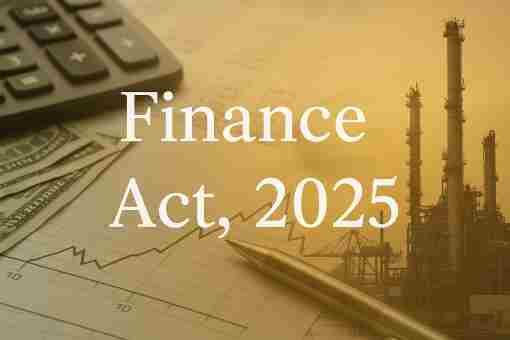Islamabad, July 1, 2025 – The National Assembly of Pakistan has formally passed the Finance Act 2025, incorporating several pivotal amendments to the Sales Tax Act, 1990, as proposed earlier in the Finance Bill 2025.
These amendments aim to refine the country’s tax system by increasing accountability, simplifying compliance, and updating enforcement mechanisms under the sales tax regime.
According to a detailed commentary released by PwC A.F. Ferguson & Co., here are the most significant changes related to sales tax under the newly enacted Finance legislation:
1. Refined Definition of Abettor: The definition of an “abettor” under the Sales Tax Act has been streamlined. It now focuses on individuals who intentionally abet or connive in tax fraud. Earlier clauses relating to misuse of login credentials and bogus sales tax registrations have been removed from this section to avoid ambiguity.
2. Food & E-commerce Exemptions: Delivery platforms, such as food delivery and e-commerce service providers, were previously proposed to be categorized under “courier” services, which would have made them liable to collect sales tax. However, this proposal has been withdrawn, excluding such platforms from sales tax collection obligations when delivering digitally ordered taxable goods.
3. E-commerce and Withholding Tax: A proposed 2% sales tax withholding mechanism on e-commerce transactions by payment intermediaries and couriers will now only apply to cottage industry and retailers (excluding Tier-I retailers). These sellers, if possessing an NTN, are not required to register for sales tax purposes under this final taxation regime.
4. Bank Account Suspension Procedure: In cases where the Commissioner believes an individual is supplying taxable goods without registration, the power to block bank accounts has been restricted. Instead of immediate permanent action, the account must first be intermittently suspended three times—each suspension lasting three working days with a one-week gap in between. Only after these measures, and failure to respond to three notices, can the matter escalate.
5. Committee for Registration Enforcement: If registration is not obtained within 15 days of the last suspension, a committee headed by the Chief Commissioner will conduct a hearing. The committee can recommend either imposing a restriction on transferring immovable property or lifting the bank account freeze. A 15-day grace period is offered before final action is taken.
6. Penalties and Integration: Penalties that were previously applicable only to Tier-I retailers for failing to integrate with the tax system have now been extended to all registered persons obligated to integrate. This is a significant compliance expansion under the Finance Act.
7. Rationalisation of Penalties and Arrest Powers: Penalties and prosecution clauses for tax fraud, abetment, and failure by online marketplaces to file monthly statements have been rationalized. Arrests for alleged tax fraud can now only be made under strict conditions—such as refusal to cooperate after three notices, attempt to flee, or attempts to tamper with evidence.
8. Arrest Powers of Investigation Officers Scaled Back: The controversial proposal to grant investigation officers police-like powers under the Criminal Procedure Code has been withdrawn. Similarly, provisions to explicitly arrest CEOs and CFOs of companies involved in tax frauds have also been removed, signaling a more balanced approach.
9. Condonation of Time Limitation: A proposed provision allowing a special Board-notified committee to condone limitations under the Act has been expanded. Now, time condonation is permissible not only where the exchequer suffers significant loss but also in cases where the taxpayer faces substantial financial hardship.
With the Finance Act 2025, the government aims to strike a balance between enforcement and fairness in the application of sales tax laws. These targeted reforms are intended to modernize the compliance landscape while protecting taxpayer rights and ensuring due process. The Act reaffirms the state’s commitment to improving the integrity and efficiency of Pakistan’s tax system.
